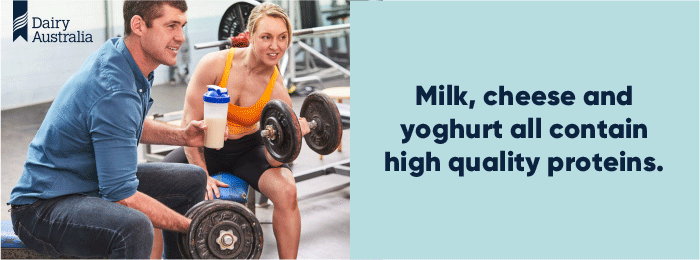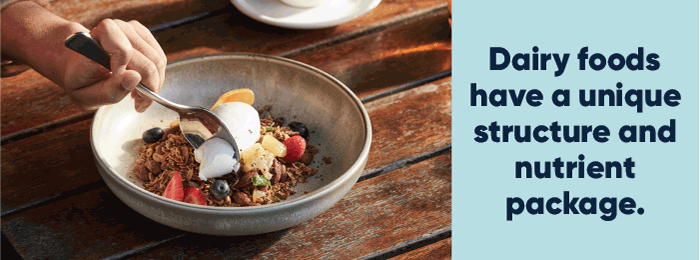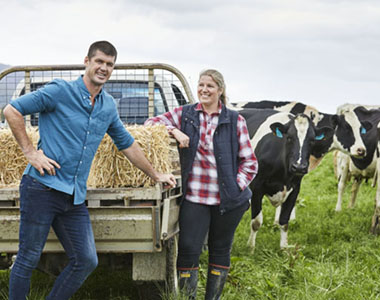Dairy Matters for strong bones

Most people don’t think about their bones until they have a fracture or until they reach older age. However, bones are living tissue, constantly in a state of renewal, so building and maintaining bones is a lifelong matter.
Poor bone health affects 2 in 3 Australians and can lead to serious fractures which can cause chronic pain, disability and loss of independence.
The three actions for bone health are:
- Consuming plenty of calcium-rich foods, such as milk, cheese and yoghurt, every day;
- Participating in regular exercise and physical activity; and
- Enjoying regular and safe sun exposure for adequate vitamin D production.
Dairy foods are naturally rich in both calcium and high-quality protein, both essential nutrients for building. Learn more about the health benefits of dairy foods.
Protein in dairy matters for healthy lean muscles

What you eat matters for muscle health. So when it comes to muscle - milk, yoghurt and cheese contain high-quality proteins (whey and casein) that provide all the essential amino acids needed to build and maintain muscle mass.
Studies have now shown that consuming milk after resistance training promotes more muscle gain than other protein sources.1
Dairy matters - it's wholesome and healthy

Nutrition scientists are recognising that the health effects of dairy foods go beyond just the benefits of the individual nutrients they contain. The unique ‘Dairy Matrix’ is responsible for the many health benefits of these foods. We now understand it is a combination of both the nutrients and how these interact with the distinct physical structures of milk, cheese and yoghurt that determines a dairy food’s true health effect. This is called the Food Matrix effect - the whole dairy food is greater than the sum of its parts.
Dairy foods pack some pretty important health benefits and provide a unique package of more than 10 essential vitamins and minerals.
The Australian Dietary Guidelines say that consumption of milk, cheese and yoghurt is linked to a reduced risk of heart disease, stroke, hypertension, type 2 diabetes, metabolic syndrome and colorectal cancer – some of the main causes of death in Australia. Learn more about what makes dairy foods so unique.
Getting enough dairy matters

Milk, cheese and yoghurt form one of the five food groups that make up a balanced diet in the Australian Dietary Guidelines. Alarmingly, 90% of Australian adults are not getting enough dairy in their diets and are missing out on the health benefits.2 Including milk, cheese and yoghurt as part of a balanced diet is linked to a reduced risk of heart disease, stroke, hypertension, type 2 diabetes, colorectal cancer and the metabolic syndrome.3
To meet the Australian Dietary Guidelines recommended serves of milk, cheese, yoghurt and/or alternatives:
- Depending on their age and gender, children need between one-and-a-half and three serves each day
- Teens need 3.5 serves each day.
- Adults aged 19- 50 need 2.5 serves each day
- Women over 50 need four serves each day
- Men aged 51 – 70 need 2.5 serves each day, and men over 70 need four serves each day
Find out how much dairy you need.
1 Wilkinson et al (2006) Am J Clin Nutr. 85:1031-1040).
2 Doidge J, Segal L. Most Australians do not meet recommendations for dairy consumption: findings of a new technique to analyse nutrition surveys. Aust N Z J Public Health. 2012;36(3):236-40.
3 National Health and Medical Research Council. Australian Dietary Guidelines, Canberra: Commonwealth of Australia; 2013.



